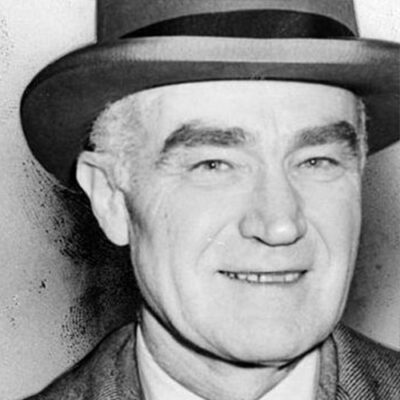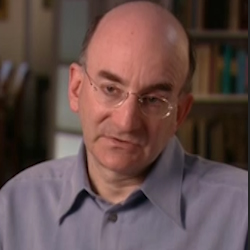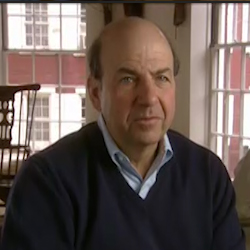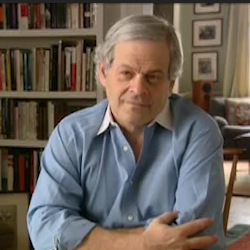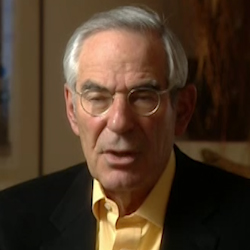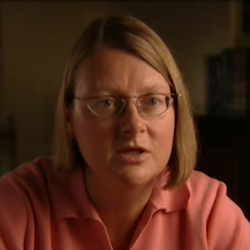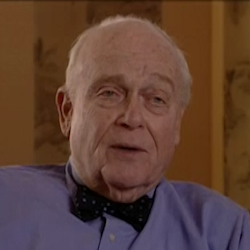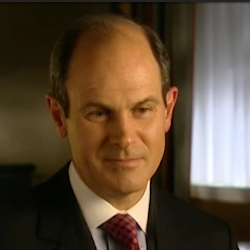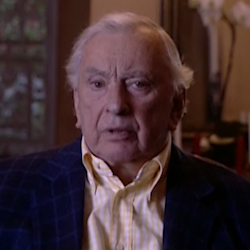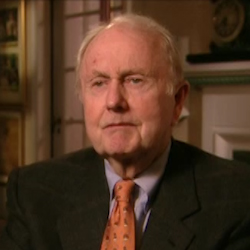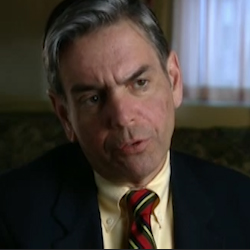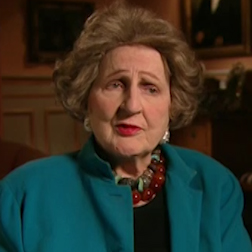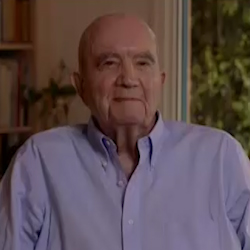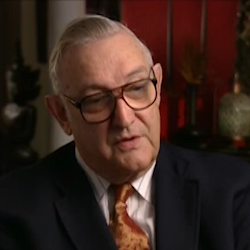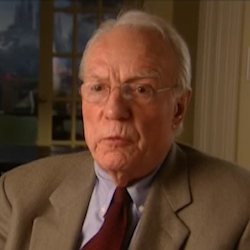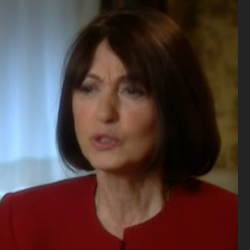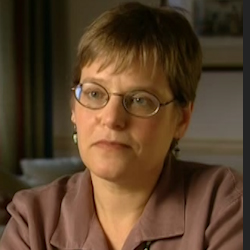Speaker Yeah, what is that? Jet jets, Kennedy, Idlewild at the time when I came. I’m sorry to interrupt.
Speaker I mean, I wanted the. To go back and ask, did you do you recall from these procedures in the hospital, do you call them making you sick or having side effects that that were troublesome for you?
Speaker I can’t say that I do I do remember how, however, I can’t.
Speaker I blew that to do it to you, guy.
Speaker Had time.
Speaker I don’t recall that any procedures that were done on me made me sick. Not that positively, but I do know that I was in the hospital many times and I was quite ill with high fevers.
Speaker Again, I don’t know. From what? I remember one time in the hospital when there was going to be some kind of an action.
Speaker And that usually men that very many people from the hospital were taken straight to the gas chamber. And I remember that there was a nurse there. Who shoved me under her skirt and just said, be very quiet. And I think I escaped an actual. Action to the gas chambers.
Speaker That’s my phone.
Speaker C.A.T..
Speaker We all because of that. So there you go. Oh, my God. Just just told me that portion about how there was an action.
Speaker Others look.
Speaker One day there was an action in the hospital. And most of the patients were being sent out to the gas chamber. And I recall there was a nurse who just. Grabbed me and shoved me under her skirt and said, just be very quiet. And I think that’s how I was saved that day.
Speaker Did you have any?
Speaker Close encounters, as it were, in the infirmary.
Speaker I had no close encounter that I recall. I was just taken, examined. Done with whatever. Nothing seemed painful. It’s been any length of time there.
Speaker And that was pretty much.
Speaker So how did.
Speaker How did you how did you get out of Auschwitz? What happened?
Speaker Well, some tie sometimes towards the end of the war in January of 1945. Things suddenly changed. Now, Fritz, it was no longer. Operating in the smooth fashion in which it had been there was a lot of confusion and people running every which way. And people even shouting that we’re free. The German the Russians are coming, the Russians are coming. And I can’t say that I really understood. I did understand the joy that something good had happened. However, by that time, I myself was quite ill and I had been just lying on the floor. I could not even get up at that point. And some time before the Russians actually arrive. There was a lady who lived in the city of outwits a Polish lady who actually came into the camp, picked me up, put me on her shoulders and took me to her home.
Speaker In Englewood.
Speaker Well, I stayed with her for a while.
Speaker And I was enrolled in Catholic school. And. I became a Polish little Catholic girl. Until. The Jewish.
Speaker I can’t recall the name now, but there was a Jewish organization at that time that was seeking to rescue children from. Non, non, non Jewish homes. And I was taken from her and put into an orphanage in France.
Speaker How did. I’m curious that you were. But this woman chose you. She came and she chose you. How do you. I’m sure she wouldn’t have known at the time. You were probably just some cable guy with. Do you have any sense of why you or how that happened or not at all?
Speaker I, I don’t know. I have no idea.
Speaker What about you? What happened? Did you come to leave out the circumstances?
Speaker Well, towards the end of our stay in Auschwitz by stay in Auschwitz. Um. Things changed somewhat in the. And the camp atmosphere, there were more air raids. I recall. Because during air raids, we all had to go inside the barracks. We heard the drone of the aircraft and there was always a soldier placed outside our barrack for a reason, I don’t know. But there was a general sort of blacks feeling. We got I got from the soldiers. They weren’t always around there in as many numbers. And then all of a sudden, one at one point, we were asked to. To line up or to congregate. And I think there are going to load us. That’s my thoughts. They were gonna load us onto a truck and we were gonna be. Taken to gas chambers.
Speaker I remember the feeling because it was probably the first time I really felt fear and instinctive fear, like an animal knows when it’s going to die. There’s an in something about this action that was terrified me. And we were lined up. We’re getting started to load the truck and the gates of our camp. Our area opened up. And this green convertible pulled in with. High ranking officers. I imagine I do recall seeing the boots more than the hats. But whoever it was and I think I heard later, that might have been Mangala who stopped this whole thing from happening.
Speaker There’s at the very end when we were finally.
Speaker Released or taken out of the camp, we were still marched out by German soldiers during the night. It was a very cold night and we had to keep marching. Anybody that stopped or fell out of line was shot. And that was it. We just kept going.
Speaker That was my.
Speaker I should mention that all of a sudden while we were on the march. All there was gunfire in the back. Artillery was rumbling in the back. All of a sudden, the Germans guards all around disappeared. They were gone. They’re just not there. And very short time later, Russians all around us on horses.
Speaker Russian loud. And they marched us into a into an area where there were some food stores. And it was pretty chaotic. What happened when your staff of. Well, everybody ran for it. I didn’t know what I saw, I just do that. This was good stuff to get. And.
Speaker I was so little. I. I got pushed aside. I mean, I finally got there. All I got is a can gold colored can look huge to me out of know how a really was when we opened that. It was sauerkraut. Remember that. Very. But I think a lot of people got themselves Berio and died as a result of overeating, eating on such.
Speaker Empty stomachs. Did you eat the sauerkraut? I just smelled it. I wasn’t into it. No. You know, two things.
Speaker And then what happened to you?
Speaker I was taken to a hospital first. Band there had something not exactly right with me. And then to an orphanage.
Speaker In Czechoslovakia. A town called Koshy to.
Speaker That’s sort of the end. But as we’re sitting here and talking, I was wondering, I didn’t mention at all and I don’t recall when this really happened, when our numbers were put on, they were put on in Auschwitz. I’m pretty sure. But I don’t recall at what point this happened at all. I do remember the prick’s. I remember all that, but I don’t recall when. It’s like totally.
Speaker Irene, do you remember? You recall?
Speaker I can’t say actually, but I think it was when we first arrived.
Speaker I believe Irene. She says that we got the most when we first arrived.
Speaker What? But you ended up in Israel, correct? No.
Speaker I did not end up in Israel, I was in Czechoslovakia and I went I was taken out of the orphanage by my family. And then another family and I went to school there. Till I left Czechoslovakia in 1949, I went to public school there and now did you again.
Speaker You were still you had seen each other only once. What was your feeling? I’m going to ask you this as well. What was your feeling about. Let me ask you this, what did you think about your sister? Were you were you.
Speaker What were your thoughts about your sister? She was constantly my reaction to any adversity, any bad things that happened. I said, I have to live through this. I have to go through this. I have to do it. As for Irene. So she was constantly I. And I knew that she I believed and I knew that she was alive, otherwise I couldn’t have gone on with this. So. Always.
Speaker And even, you know, as years passed and you still didn’t know where she was, you still absolutely.
Speaker I had faith all the way through until I saw me. We made first contact, which was, I think, by mail in 1948.
Speaker Could you say that again and finish the sentence that you had?
Speaker I, I, I always had faith and knew that she was alive, even though we had no contact and we didn’t have contact at first. In 1948, I think through mail. But I, I always know that she was there. And I was she was always my my support.
Speaker But you I mean, what did you have superfluity feelings? What did you feel about your brother?
Speaker Because you were going through all this post-war.
Speaker I knew that he was out there. And that he was alive. I did not have any idea where, but I lost, so in my heart I knew that someday we would be together. I didn’t know quite how. But I also.
Speaker The need to make sure that he was OK, you got me through a lot of things to.
Speaker Did you ever despair that maybe he wasn’t or or did was it solid, positive faith that you knew he was out there? Did you ever just tell a really solid faith that he was that?
Speaker I have to concur with Irene with constant, constantly new. Always never a doubt that this is going to be OK. Because she was out there and I wasn’t quite sure about being reunited or when, I guess was the big question, but I wasn’t sure she was there.
Speaker Erin, can you tell me about how you came to be in this country?
Speaker When I was in the orphanage in Full Blaine, which a small town outside of Paris, I was chosen by Mr. Herbert Tenzer, who at that time headed an organization called Rescue Children with the whose main purpose was to help children and reunite children with parents or possibly find them homes here in the states or. Bring them to Israel just to help more war orphans. And he selected me to come here to represent the war orphans, to raise money for this endeavor. And that’s how I came to America. I think he chose me not because I was anything special, I think I just had very long hair. I think he liked my long curly hair.
Speaker And then but then how did you come to be with this one?
Speaker Well, for a while when Mr. Potenza first chose me, he promised me that I could go back because I didn’t really want to come to America. I had a very dear friend in the orphanage and she was going to Israel and I wanted to go with her. However, what you don’t tell little children is you promise them anything and then you do what you want. And so once he got me here to the States, he never, ever intended to send me back. And he did seek out some people who were willing to adopt. And he found this family. The Slatkin’s. And that’s how I.
Speaker Stadia. And that’s how Rene came because it was a wonderful.
Speaker Yeah, you can swing it just a little bit, but we won’t.
Speaker If you can tell me.
Speaker Uh. How you found him?
Speaker The way I found Rene is a very long story in itself, but it starts out with a photo shoot for Life magazine when I and another boy had been selected to come here to raise funds for the European war orphans.
Speaker And at that time, Dr. Choline, not the doctor that Rene had been living with in Czechoslovakia. This was already a 19. Forty eight. Actually, the Life magazine was November 1947.
Speaker But this doctor, choline, I had been forced to flee Czechoslovakia because the communists were overtaking it.
Speaker It was going behind the Iron Curtain. And he fled to Israel. And one day he was, I guess, in a stationery store and he picked up Life magazine and he opened to the page with me on it and he recognized the name Goodman. And he realized right then that I must be Rene’s twin sister. And that’s how we first made contact.
Speaker Could you tell me that story again and this time? Give me a little prologue to that. That explains that.
Speaker That you and Rene had been separated because of the war. And then told the story about how. How the picture of the photo shoot got you back together.
Speaker OK.
Speaker I’m not a professional actress. Does this mean I get a bigger fee?
Speaker Yeah, I just have to tell the truth. Stuff like it is told like life is meaningless.
Speaker Well, Bernie and I, we from the time we were separated in our shirts, even when the war was over, we can can use our separate ways. Rene went to Czechoslovakia and I went to Poland for a while and then to France. Where I was selected to represent the war orphans of Europe and I was brought here to America by an organization called Rescue Children. When I got to America, it was a very big story because we also went to see President Truman and Life magazine did a three page spread on our coming here, and it was Life magazine that eventually would would prove to be the Bond girl. The little. Miracle that brought Rene and I together again, because at that time, a Life magazine was done in 19 November 1947, and by this time, Dr. Choline, not the man that Binay was staying with, had to flee Czechoslovakia because it was going behind the Iron Curtain. He fled to Israel and by some sheer luck, he picked up Life magazine. In nineteen forty eight, then he saw the picture of me, saw the name and made the connection that I must be Ronnie’s twin sister. And that’s started the ball rolling to getting us reunited, which didn’t happen for another two years. But we made contact.
Speaker So little rain swimming pools.
Speaker You can.
Speaker What?
Speaker This is a very this is a hard question to ask, let alone answer, I guess, but what what effect did the experience of the war have when you’re growing up in America?
Speaker How the war affected my growing up in America is a huge, huge question. I wonder if we could be a little bit more specific about some of it.
Speaker Well, I mean, did you.
Speaker I guess I’ve always wondered, how do you reconcile what you went through? And then finally getting here. And. Growing up at a, quote unquote, fairly normal time in America.
Speaker How how did you incorporate one experience with the other?
Speaker The only way I can answer this one, let me how the war affected my whole life. As a very young child in afterwards and interation that, as we discussed before, I didn’t realize to the horror of the whole thing and the emotional toll that it would have taken on me had I not been a child. So everything was just going along and I didn’t know any different. I didn’t know. I knew that I didn’t have a mother and a father. But what it really meant. I really couldn’t put it in. I know this, that the Slotkin family, Maia and Diana Slatkin. Did everything they possibly could and I saw all other parents doing for their kids, so I felt I was loved, I was part of their family and I had to grow up just like everybody else, which I did. I’m not sure that I did it in the same way that other kids do it. But I don’t think any two kids grew up the same way. What the war did was I knew in the back of my mind that I was an orphan and I knew that they were not my real. Parents, real meaning, biological parents. Even though everything else they seem to be covering that this led me to question sometimes do I owe them less or more? Than the norm. Whatever the norm is. And I could never really answer that question. Just there’s no way of doing it. All I know is that they deserve a huge amount of credit for adopting us, especially me, when I didn’t even see me or know me. And they spared nothing to get me reunited with with their. Irene, which was there, Irene, at that point. And I was twelve years old, coming from. Questionable background, for sure. But they spared nothing and they loved me a hundred percent. They also were very active in keeping the war experience away from us all the years, all our teenage years. They they really put up a real fence. So any inquiries that were made about the war, about us or people want to do my make directly to the US state, they wouldn’t allow it. They just thought that they had to protect us from this.
Speaker So in that sense, we were like in the dark about it wasn’t talked about.
Speaker Irene, what was it like when you finally. Got together after all the.
Speaker It was after finally seeing Rene for the first time after all those years. In some ways it was anticlimactic. Because instead of running into each other’s arms, which with the music playing and all that, we just kind of looked at each other and we just stared at each other. We didn’t even know what to say to each other. But I think that we inside, we we knew we had.
Speaker Finally made it full circle. You know, we were now together forever. But it wasn’t all the hoopla that you would imagine.
Speaker Absolutely the same, same thing. We were we we were reunited at a great distance. What I recall is the sidewalk in front of our house. I think that’s where you came out or something like that. And we were like just looking at each other. No words were spoken.
Speaker No words spoken. And the.
Speaker I have to add at this point, in terms of words spoken about our experiences, we never talked about it, even though we lived in that same house.
Speaker We never, ever talked about. And I’m not just talking about a few years, a few decades. We have not never talked about.
Speaker Was it over time, did you sort of. So because it’s happening now, that didn’t take very long. Do you think for you to re you say your body in a way, got you through these experiences? Did it take long for you to really re-establish the bond?
Speaker I think it did. I think there was so much going on in the beginning for both of us in different ways, Rene, having to make a tremendous adjustment to American life. I had already been here for two years, so I was already speaking a good English. I was a good student. And Rene had a tough act to follow because, you know, parents can’t help comparing children. And Rene was just not a studious as me, which was fine.
Speaker But. It made it very tough for me. When you first asked us how. The war experience affected her life here. I really didn’t get a chance to say anything, but I’m gonna jump in now.
Speaker Let me just take this ETG.
Speaker It’s a very broad question, but I will try to narrow it down a little bit by really saying that my entire life has been affected by what happened to us in Auschwitz. And even to this day, my life is still affected by it. It was not an easy road for me to get to the Slatkin’s. We kind of lived over it here. But if I had stayed with other people first and then other people who for whatever reason, it didn’t work out, then those are all personal rejections. And me and my self-image was extremely, extremely poor. And I. And when I finally did get adopted by the Slatkin’s and they did. They went out of their way to do everything within their power to try to make life more normal and to make me happy and to buy me things. But the honest feel of it was that we never spoke about what happened to me. And so I began to even doubt. What is this? What really happened to me? Why isn’t anybody talking about it? And I began to be very ashamed of what had happened to me. In fact, I was so ashamed that I would not wear short sleeves because I have a number on my arm. I didn’t want the children asking me if I did. We are short sleeves. I my mom went out and bought a special cream that we would put on every day. So I also was aghast at the life in America. I, after all our shirts, was a very strict in Poland where I lived with the Polish lady was a very strict Catholic upbringing. If I was two minutes late from school, I would get whipped. I came to America and the children were shouting out in the classroom to the teachers. They didn’t do their homework. They were running around. I could not even fathom this. How could you dare? I could not believe it. I was a very regimented child. I did everything that I was told. I remember one day I asked to be nobody in eighth grade and I actually came to class late. And I. I remember having to go to the principal’s office and I was like, oh my God.
Speaker I didn’t know subsequently that the principal said it was the happiest day of his life, that he had seen me to something normal.
Speaker But my whole life has been life like that. I’ve always felt just a little bit different and not quite with it.
Speaker During that were you were growing up together in the same house, right? You didn’t speak and yet you felt there was something.
Speaker Something being I am. Go ahead. No, no, we we never spoke about it. There go. There was the bond. I knew I had a bond with him. And I remember things from when we were little things we did with our parents. Going to the park and Vinnie dropping my doll from the window and breaking it in other nice things.
Speaker We never, ever spoke about what had happened to us separately in our streets. Partly, I think, because of the atmosphere in the home. Not to talk about it. And partly, maybe we trust.
Speaker Didn’t know how to talk about it.
Speaker And so nothing was ever said and pop. And for that reason, I think in many ways we didn’t grow up close. Rene kind of had his friends and his things. And I had my things and my friends, we were very different and we didn’t really have a very close relationship at that time. We are much closer now.
Speaker When did you finally talk about when we finally first spoke about it?
Speaker Believe it or not, in 1985. And it what that occasion was triggered by the fact that we finally discovered that we were not the only twins to survive outfits up until then, we believed we were the only twins to have survived. So that’s what triggered it. And we found other twins, there were that there actually was a twin organization called Candles and they were sponsoring a a a reunification in Jerusalem. And to bring Josef Mengele to trial.
Speaker And that’s when he started speaking.
Speaker Now, during. The years preceding, say, 10 years preceding there was beginning. People were beginning to speak. The media were beginning to speak of the Holocaust. And by that time, I suspect. Well, maybe he didn’t quite have children, but you were adults.
Speaker Did you not even speak of it then? Did you do questions ever commercial harm?
Speaker Yes. By.
Speaker You were right. By the 1980s, people were talking about it. And in fact, I think 1982 was the very first reunion of Holocaust survivors in Washington under the auspices of Benjamin Mead. And it was there that another twin by the name of Eve, a court decided to seek other twins. And that’s how 1985 came into being.
Speaker But until then, I. We had been invited to this.
Speaker Reunion in Washington and so on. But I had no interest in going, and because one of the things was that as I was growing up, I heard other adults and even some adult survivors saying that I could not have survived outfits they actually denied by their existence because they said no children survived outfits. And the second part of that. And if she did survive Alfredsson, how bad could it have been? I mean, she was just a child when in reality the trauma was the greatest on the children because we lost our childhood. We lost our childhood. And so I was not keen to be with other older Holocaust survivors. And it was only when we heard that there were twins and I figured they would be closer to our experience and closer to our age, that we finally decided to open up and go and join them.
Speaker I guess what I’m trying to get to, but even during that time, did you not speak to each other about it when you were having your hand? This was you didn’t ever sort of verbalize.
Speaker This shared experience before we went to the first reunion of twins in Washington, which is early part of 80s. I don’t recall speaking to Irene abandoned still because who were still going in our separate directions, separate lives. We were married and we had our own sets of problems to deal with. It was only 85 when we first really, really opened up. And talk to each other. And I guess then to the world also.
Speaker The.
Speaker I must say something now, today is December 27th, 2002. And as I was driving here, I was thinking to myself, why are we doing this? Why are we recalling these events? And it came to my mind that we have to do is that there’s such evil that exists in the world today. Still, so apparently nothing was learned from that lesson. We are now learning from another lesson, the 9/11 lesson, even though 12 seven was just three days ago. Did anybody even mention it and talk about it?
Speaker No. So I felt sort of.
Speaker Required. I just had to do I have to do this for the future, for my children, for my grandchildren, for the world. Period. I’m sorry I went off on a tangent, I was glad you said.
Speaker And again, in addressing what we we never really did talk about our experiences at all until after eighty five. I, however, had made in a Tim this is a again, when Lori, my oldest daughter, questioned my number on my arm. I did tell her that. As much as she was only about four and I just tried to explain to her that something very bad had happened and people were marked with numbers and so. Well, my mom overheard me. And I got. Why did you have to tell her that? Why do you have to even talk about it? And again, I got that thing like my supposed to all my life be ashamed that I went through this. So, again, in the best of intentions, but it was wrong. My children have to know that this happened and their children are going to have to know.
Speaker So.
Speaker We’re going to required sell of the room for about for about 30 seconds. So if you just sit still for 30 seconds.
Speaker Brewington.
Speaker And Rivertown haven’t slept with airplanes. So this nurse also looks really good. Well, we need Rene. We need you to just listen to me. Who’s going to tell us?
Speaker Some stuff in action shot another. So I just need you to. Hi, Rene. Are we having this? So what should I tell him?
Speaker I’ll tell you a very sad story. Do you remember one night when I got lost going to latrines in the barracks? Yes. And I was so bereft that I thought I’d really be in trouble. And hands were pushing me away. If he couldn’t find a bed, I couldn’t find my bed. I was so confused. And then finally, just before dawn. Some kind lady allowed me to share her bunk. Dallas wasn’t yours. You don’t recall? Couldn’t find somebody was nice.
Speaker Good to hear.
Speaker Some you should just get one. Yes. You need to tell Mike was something. Yeah.
Speaker That’s driving here. I was going through my head. Why am I. You know, all these thoughts. Came to came to mind. One of them was the significance of the numbers. They reduce that. They reduced the population to animals like me, more cattle with numbers or signs or whatever. And then after we were MA was gave them freedom to treat us the same way.
Speaker Well, I hope. What again, I hope so, too.
Speaker Doesn’t look like it. Looks like the world is going there again. You think, Oh.

